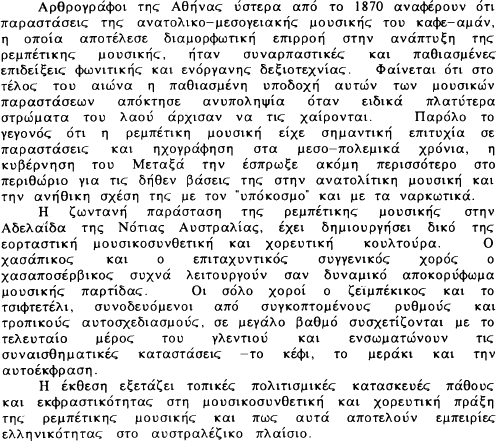Published online by Cambridge University Press: 07 March 2019
There is a long history of association between music, ethnic identity, and emotion in Greek culture, but it seems that representations of these associations are made from non-performative, non-participant and other-defined perspectives. This paper discusses the cultural constructions of passion and expression which are constituted within Greek music-making and dancing in Adelaide, South Australia. The perspective presented here is one largely informed by the experiences of the writer as musician, dancer, ethnomusicologist, and participant in many discussions on this personal and emotional issue.

This is a revised version of a paper read at the 33rd World Conference of the International Council for Traditional Music in Canberra, Australia, January 1995. I gratefully acknowledge funding assistance from the Australian Commonwealth Government Department of Employment, Education and Training, the Greek Government Ministry of Education, and the University of Adelaide, South Australia, which I have received while undertaking doctoral research of rebetika music in Adelaide and Greece.